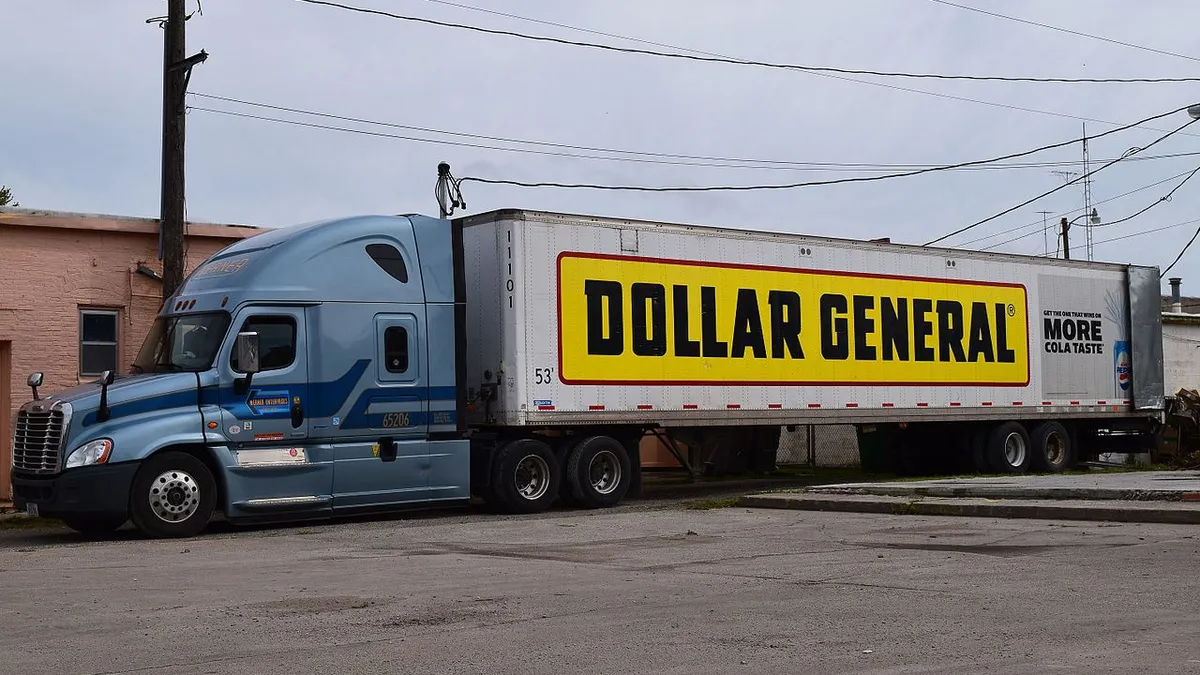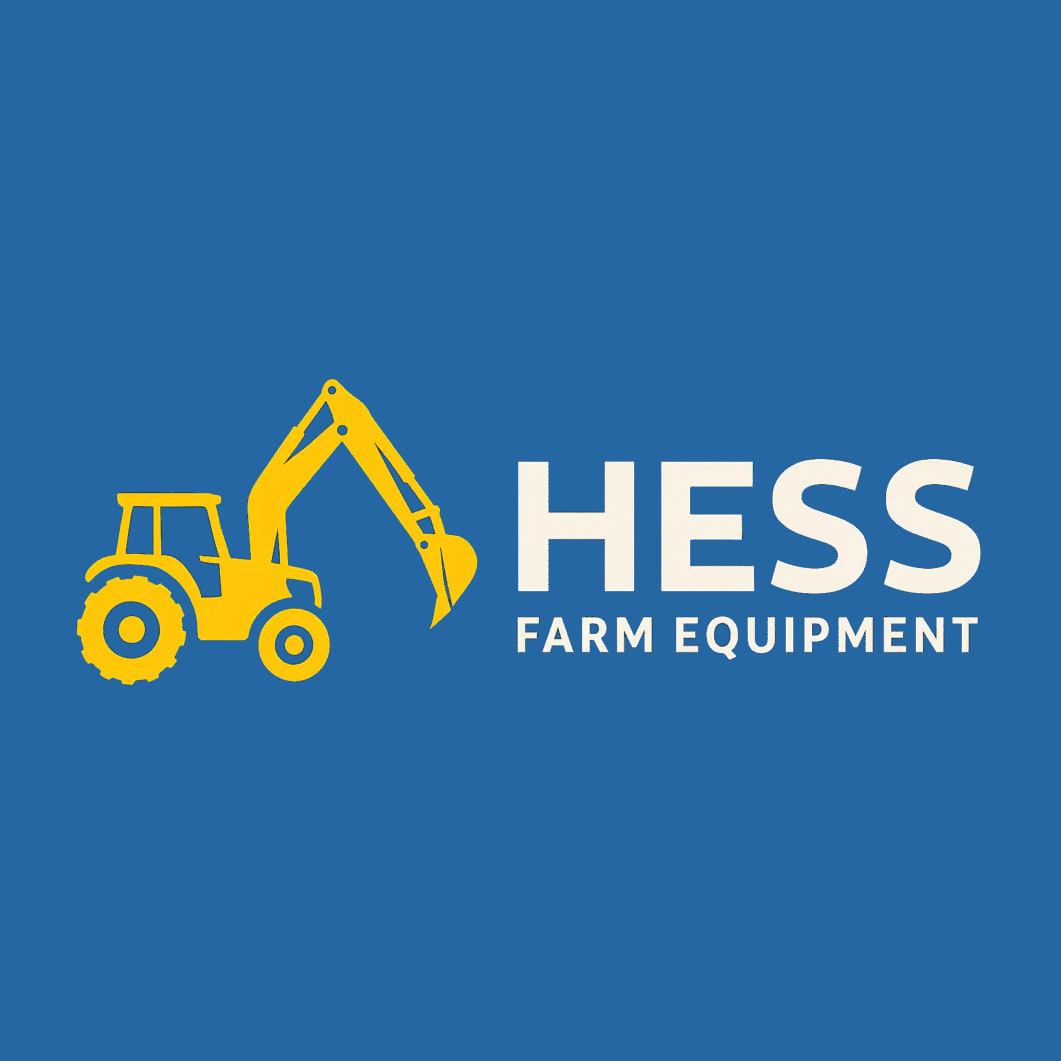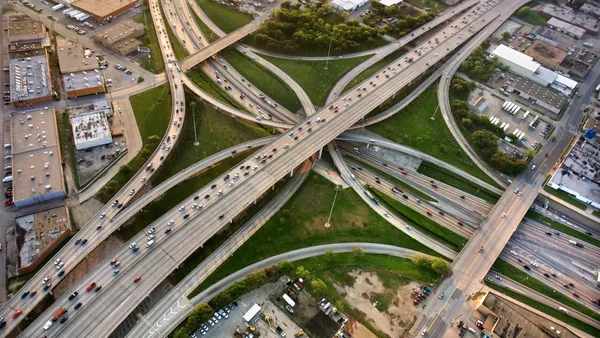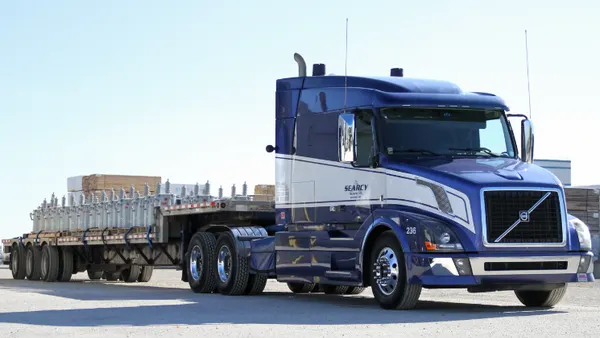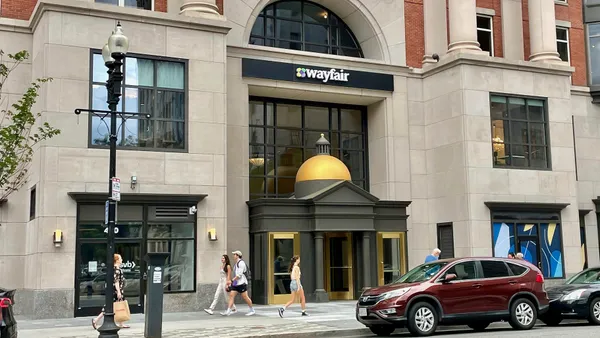Dive Brief:
- Dollar General private fleet surpassed 1,600 tractors during FY 2022 , which ended in early February, thereby doubling the amount it had a year earlier.
- The expansion of the company’s private fleet is part of a cost-savings push, where the company’s mission includes controlling expenses and always seeking to be a low-cost operator, CEO Jeffrey Owen said during the company’s Q4 earnings call.
- Within a year, the retailer expects its private fleet to grow to more than 2,000 tractors, accounting for over 50% of its outbound transportation.
Dive Insight:
Dollar General’s growing private fleet is part of the retailer’s strategy to capture market share in the low-cost retail segment.
The Tennessee-based discount retailer launched its private fleet in 2016 to reduce costs and gain more operational control of its supply chain by expanding its distribution center network and relying less on third-party carriers. The company has said it saves about 20% in associated costs each time it replaces a third-party tractor with one from its private fleet.
A push to grow its brands points to how its fleet could grow. In 2020, it launched Popshelf, a store specializing in assorted consumer items, and Dollar General plans to grow these from 140 locations to nearly 300 by early 2024. The retailer is also focused on growing its DG Fresh segment by delivering more frozen and refrigerated foods to its national network of stores.
The business seeks to expand fresh produce delivery from 3,200 stores to 5,000 locations by the end of the year. That grocery segment could allow for even further growth, too. “DG Fresh provides a potential path forward to expanding our produce offering to more than 10,000 stores over time,” Owen said on the earnings call.
Introduction of new product lines and the Popshelf stores drove the need for an improved distribution and supply chain network. The company in July 2022 announced plans for three new distribution centers, located in Arkansas, Colorado and Oregon.
The company’s investment in its private fleet has benefited from its internal professional development program, which includes offering retail store employees training to earn their CDLs. Owen said more than 10% of its private fleet drivers, a team that doubled in size in 2022, began their careers either at a store or distribution center.



